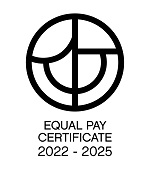Significant taxes paid in Namibia
Companies affiliated with Samherji paid the equivalent of ISK 6.5 billion in total to the Namibian treasury while they were in operation. Firstly, these are total tax payments and secondly, special levies for the utilization of catch quotas. In addition, companies affiliated with Samherji paid a total of ISK 12 billion for the quotas, and a significant part of that amount was paid state-owned companies and institutions.
Last week, Samherji announced that the investigation into the company's operations in Namibia, conducted by Norwegian law firm Wikborg Rein, had been finalized. The announcement outlined the next steps in the process. It was stated that Samherji would soon explain further the individual allegations that have been made against the company and its employees.
One of the accusations that companies affiliated with Samherji have faced is that they tried to evade tax payments in Namibia or did not pay the required amount in taxes. This seriously violates company policy, as Samherji has always emphasized strongly that its subsidiaries fulfil their obligations regarding the payment of salaries, taxes and fees.
Due to the above allegations, Samherji summarized what the companies in Namibia paid in taxes to the Namibian treasury while they were in operation in the years 2012-2019. Total taxes paid by Samherji's companies in Namibia over the years, including income tax, employee taxes, export duties, import duties, and a number of other payments to the Namibian state, amounted to a total of ISK 4 billion at today's exchange rate. Income tax and employee taxes weigh the most, as these two items make up 66% of the total tax payments for the period.
Samherji also summarized what the Namibian companies paid the Namibian state for the utilization of catch quotas during the same period. Companies affiliated with Samherji were not allocated catch quotas but bought and leased them from others and then paid special levies to the state for their utilization. These levies amounted to a total of ISK 2.5 billion at today's exchange rate. These two items, total tax payments and levies for the utilization of catch quotas, are therefore a total of ISK 6.5 billion. If payments for the purchase and lease of catch quotas are included, the amount for catch quotas is significantly higher, or a total of ISK 12 billion, which was 29.3% of total revenues in Namibia. A substantial part of that amount went to state-owned institutions and companies.
As previously reported, companies related to Samherji paid a total of ISK 21.4 billion to Namibian parties in the period 2012-2018. This information is based on the Pro forma consolidated financial statements of Samherji's companies in Namibia, but figures for 2019 are not available. Samherji's management hopes that the publication of this information, on payments to Namibian parties and the Namibian treasury, will lead to fact-based reporting about the operations in Namibia.
"It is important to note that the tax payments, as well as other payments made to Namibian parties during the period, show that there is no basis for allegations about exploitation in Namibia, which affected us deeply," says Björgólfur Jóhannsson, co-CEO of Samherji.
Companies affiliated with Samherji ceased operations in Namibia in 2019. In the coming weeks, Samherji will publish further information on its business activities in Namibia.
For further information, contact:
Margrét Ólafsdóttir
margret@samherji.is


